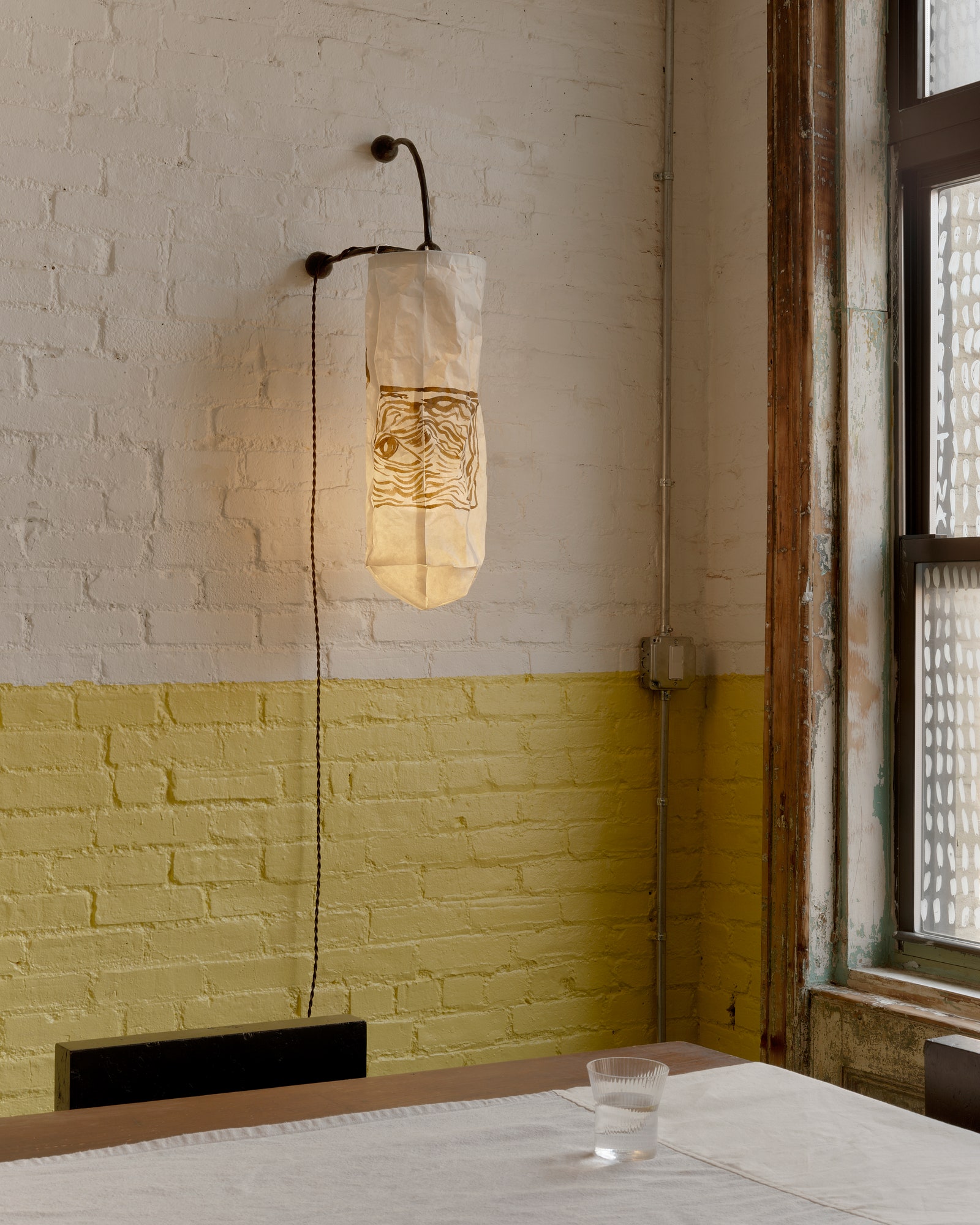The designer explains that the co-presented sister shows are manifestations of her own “left brain vs. right brain” thinking, and represent the dualities of the ethereal vs. the visceral; emotional intuition vs. dream logic. At The Future Perfect’s grand, immaculate West Village townhouse, several of Toogood’s best-loved designs are covered in her boldly colorful, expressive markings. The instantly recognizable, cast-fiberglass Roly Poly Dining Table and Chair; the plump, upholstered Gummy Armchairs, Sofa and Footstools; and the rounded, intersecting Palette Tables have all received this special treatment—along with a new set of wooden folding screens, a version of the Palette Console in aluminum, and a large mobile in the same metal. “The challenge was letting myself loose in a daydream-like way, with just paint and color and hands and brushes and pens and squeegees and sponges,” she remembers, noting she was egged on by The Future Perfect founder David Alhadeff. “For a week, I just went for it.”
Meanwhile, Toogood’s collection at TIWA Select’s rustic industrial loft space in Tribeca was informed by a recent trip she took to Japan. Using the rice paper and ink she brought back, the designer fashioned a series of paper lights that are washed with sensual single-stroke lines that depict figures, appendages, and patterns that come alive when the pieces are illuminated at night. The crumpled surfaces and textured wrought iron frames of the Johnny collection align perfectly with the “nocturnal subconscious” of the gallery’s more personal and intimate setting, curated by Alex Tieghi-Walker.
The inflection point in Toogood’s approach to her work began—as it did for many creatives—during the pandemic, when the limitations brought on by lockdowns sparked a new sense of creative freedom, resourcefulness, and a return to play. She recalls her thoughts at the time: “I can’t go and buy amazing new materials. What have I got? I’ve got kitchen foil. I’ve got stuff in the fridge. I’ve got some stuff in the garden.” The reason why so many of her recent collections have an inherently domestic flair, she notes, is partly out of necessity.
“Unsettling” rapid advances in technology have also given Toogood pause lately, forcing her to reflect upon her role as a designer within a fast-changing world. “AI can design a Faye Toogood chair better than Faye Toogood, in theory. So what can I actually bring?” Her response: more humanity and genuine emotion, which has resulted in a shift from more rigid, contained, utilitarian forms of her earlier career, to a much more personal, sexual, feminine aesthetic influenced by her emotions, her life, and her immediate context—all things that purposefully “provide the antidote to the machine.”
















